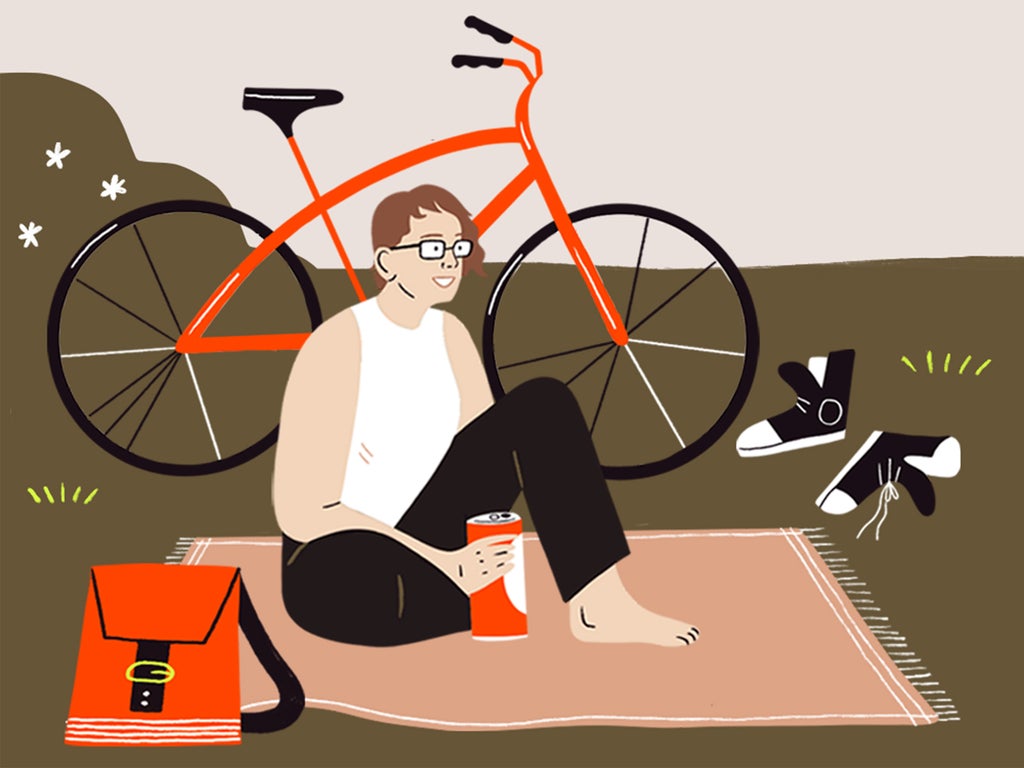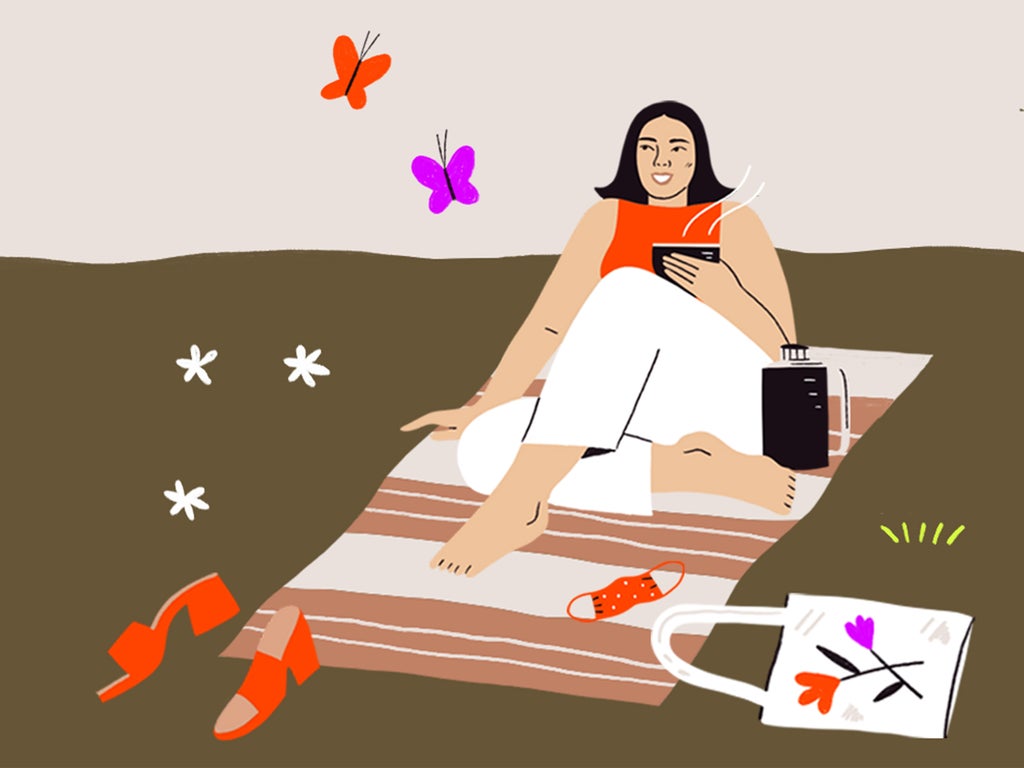My grandmother and I were sitting in her living room a month before COVID-19 became the only thing that mattered, flicking through her Freeview service for something that might appeal to us both. Given that her TV diet consists of reruns of ‘90s quiz shows and True Movies, this is not an easy task. She settled on the BBC’s latest period drama. When Suranne Jones appeared on screen, complete with top hat and waistcoat, I realised we were watching Gentleman Jack, a series I’d read about but hadn’t had a chance to see for myself.
A few minutes into the episode, Anne Lister — the protagonist and a legendary lesbian — proceeded to go down on her terrifically excited female companion. My grandmother turned to me and said, “‘Tis a bit queer, isn’t it?”
“Is it?” I responded, raising my eyebrows as if I had no idea what she was talking about. She jiggled the remote but didn’t change channels, and so we sat for half an hour more of Lister’s conquests, punctuated by occasional interjections from across the room about the queerness of it all. It was, of course, extremely queer, but my grandmother’s use of the term remained in the realm of an insult (even if an uncomprehending one), rather than a political affirmation of sexual dissidence. I said nothing to her about my growing awareness of my own queerness. Nor the fact that my straight, monogamous relationship of almost five years was beginning to come apart at the seams — in part because of those heretofore unexpressed desires. I had barely come out to myself, and I was certainly not ready to broach the topic with my 86-year-old grandmother.
It wasn’t long after that conversation — or lack of one — that I became officially single and could begin exploring this side of myself, guilt-free. But I only had enough time to set myself up on the apps and managed a couple of dates with interesting women before the global lockdown began. When it became clear quarantine would likely last months, rather than weeks, I deleted the apps and ordered a vibrator from my favourite feminist sex shop. Then spring turned to summer, certain restrictions began to lift, and I, desperate for human connection, started swiping again.
One of my first matches was a woman who’d sat three rows away from my desk in the open-plan research centre where I’d worked pre-pandemic. In the three months since the pandemic started, we’d never crossed paths, and by the time we connected on Tinder, she was living in the countryside, 19 miles from my city. After weeks of chatting on our phones, we were able to arrange to meet for coffee in her village. Without a car, however, I had no other way of getting there than by bike.

I set off on a gloriously sunny Friday at the end of May, cycling south along the rocky and windswept coastline of Galway’s Wild Atlantic Way. It took me two hours on nearly empty roads to reach her village. She waited for me on a pier with a picnic blanket, which we spread out fully to mark the six-foot distance, and a flask of freshly brewed coffee. I brought my own cup, snacks, and water. If she thought I was a little over enthusiastic for cycling 19 miles to meet a stranger, she said nothing. Sitting cross-legged under the sun, looking out over fishing boats, it was a scene that could be said to resemble a pre-pandemic date were it not for the exaggerated space between us.
Public toilets were closed, so when the water and coffee got the best of us, we wandered through the village looking for a suitably secluded spot to take care of our necessities. When we found one — a field behind the local supermarket — we took turns being lookouts as the other hopped the fence and skulked into the bushes. Perhaps to smooth over the awkwardness of the moment, she made a joke about how we’re already peeing together on our first date. Eager to hide my own embarrassment, I laughed and mumbled something about these being “strange times.”
Despite the adventure, or because of it, we clicked and kept chatting throughout June. But without a car and with continued restrictions around travel in my area, we only managed to meet twice more for equally distant, daytime dates before she decided to return to her family’s home in Germany. In pre-pandemic times, I might have hopped across to the Continent to see if the connection was worth pursuing. But with non-essential travel discouraged, widespread flight cancellations, and mandatory quarantine periods, leaving the island for a flight of Tinder fancy was not recommended. Instead, we were left to wonder what might have been if we had met under alternative circumstances, or in alternative universes.
I knew I wasn’t the only person who was finding pandemic dating to be an exercise in frustration. But after several other similar near misses and false starts, I began to question whether these difficulties could truly be blamed on the pandemic — or if it was just me.

Being newly single in 2020 has meant learning how to date during a time of non-stop uncertainty while also learning how to date women. Media has me well-schooled in the codes of heterosexual attraction, but I’m totally lost when it comes to interpreting signs of romantic interest from women. My struggles have only been compounded by the limited possibilities for the sort of closeness or touch that turns a friendly conversation into something more charged. Even when I do feel something, I wonder whether the chemistry is real or nothing more than the product of a profound loneliness — and whether it even matters.
Imposter syndrome has also reared its ugly head. My lack of concrete experience with other women has made me wonder whether I am queer at all, or if I just like hanging out with strong, interesting women. I feel the weight of generations of activists who opened a relatively safe space for exploring the world beyond heteronormative desire, to which my own contribution feels minimal, or non-existent.
And then there are the more banal doubts, linked to a rather shaky foundation of self-esteem: Am I simply unattractive to anyone of any gender?
Dating during the pandemic hasn’t been all bad. Pandemic restrictions have liberated me from many of the crutches I’d previously used to meet people, particularly pubs — my reliance on the alcohol, the dark lighting and cosy corners, and the proximity of other bodies throbbing with desire to help me let go of my inhibitions didn’t always feel healthy. There’s also some relief in the necessity of taking things slow and negotiating boundaries around physical contact. While my queerness is not something my grandmother would easily accept, I often thought that if I shared with her the tales of my forays into the dating world during the pandemic, she might be surprised by how much they resemble the courtships of her youth. I’m sure she would approve of the government-mandated social distancing, the restrictions on touching and household visits, the limited access to alcohol, and the wholesome walks outdoors.
The world is in turmoil and we have all endured so much over the last year: the illness and loss of loved ones, the isolation of quarantine, political violence and upheaval. If pandemic dating has taught me anything, it is the virtue of being realistic about what anyone can give right now, including myself. So while I look forward to dating post-pandemic when social distancing guidelines have lifted, I’m also trying to enjoy the new experiences I’m having now, as I continue to court wonderful women and hope that one of us might consider it worth the risk to bridge the distance and take my in hers, to share a caress — and maybe more. It is a bit queer, and I’m hoping for it to get a lot more so.
Welcome to The Single Files. Each installment of Refinery29’s bi-monthly column features a personal essay that explores the unique joys and challenges of being single right now. Have your own idea you’d like to submit? Email single.files@vice.com.
Like what you see? How about some more R29 goodness, right here?
8 Books To Bring A Bit More Queer Joy To Your Life